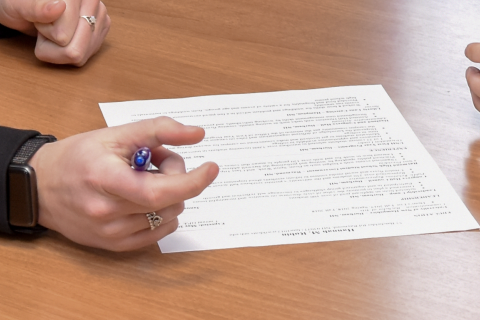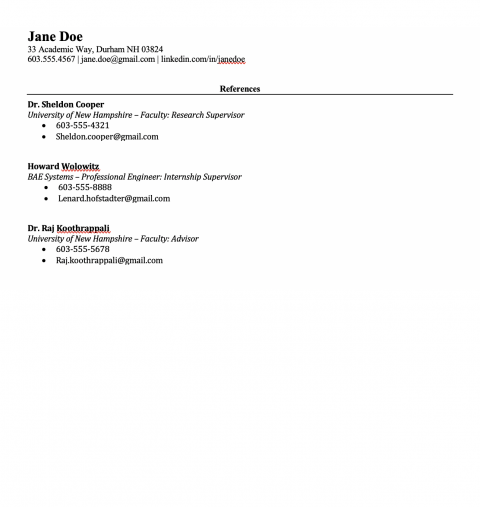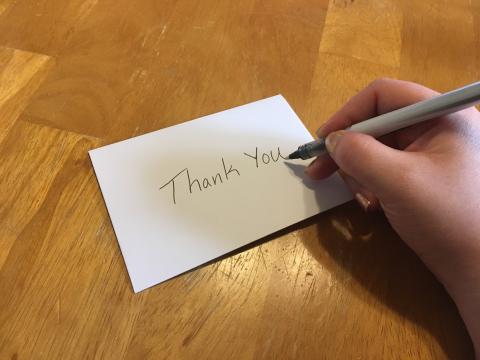References
References are a list of 3-5 people who know your work style and can attest to your performance, time management, professionalism, and ability to do the work. References can be former supervisors, faculty members, academic advisors, campus staff, coaches, or anyone in a professional position who can share information about your work ethic, abilities, and character. References should not be friends, family, or peers.
What you need to know:

- Always ask permission to use someone as a reference BEFORE you use their name. It might be helpful to let your references know you will be applying to multiple jobs, internships, etc. and you would like to use them as a reference throughout the process.
- To get the strongest reference, ask if someone is willing to be a strong and positive recommendation. You do not want someone who says yes but can only provide a basic or mediocre reference.
- Prepare your references in advance. Provide them with your resume, cover letter, and job description. If you are applying to graduate school, share your personal statement. Any documents you are using to apply you should share with your references. It will allow them to be thorough and specific with what they share about you and your experience.
- There are some applications that require a letter of recommendation (i.e. fellowships, scholarships, graduate school, etc.) be sure to ask your references well in advance (at least a month) so they have plenty of time to write a thoughtful letter and ask questions if they have any.
- Ask your references what contact information they would like you to use (i.e. name, position, organization, email, and phone number). Remember, just because you have permission to call or text their cell phone does not mean references want to use that as their professional contact.
- Thank your references for all of their help. It is important to maintain a positive and professional relationship.
Presentation
- References should not be on your resume; they are their own document.
- When writing your reference sheet, make sure it has consistent formatting to your other application materials. Use the same font, format, and paper if you are printing.
- Provide information including: Name, title, connection (how do they know you), phone number, email, and possibly their physical address.
- Bring at least one copy of your reference list to the interview. This way, you are prepared if asked. Even if not asked, you can offer a copy of your references at the end of your interview.
Thank You Notes
A thank you note is a professional follow-up to an interview or when someone has given you career advice or mentoring. It is essential to send a thank you note within 24 hours after the contact.
Structure

The main goal is to express your appreciation for their time and consideration. You can email or handwrite the note (the format should always be professional).
- Keep your letter brief
- Thank the employer for the opportunity to interview
- Reiterate your interest in the position at this time
- When sending multiple thank you notes to people at the same company, try to personalize each note by saying something like “I enjoyed speaking with you about…”
- Mention any relevant skills or qualifications you forgot to emphasize during the interview
- Highlight the important points you made about your qualifications and interests
- Close the letter by thanking your contact again
- Refer to any next steps you and the interviewer discussed
- If you really want the job, say so at this point




